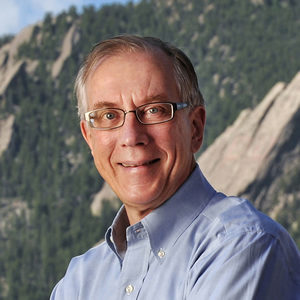Tom Cech is a Howard Hughes Medical Institute Investigator and Distinguished Professor of Chemistry and Biochemistry at the University of Colorado Boulder (CU Boulder). In 1982, Cech and his research group announced that an RNA molecule from Tetrahymena, a single-celled pond organism, cut and rejoined chemical bonds in the complete absence of proteins. This discovery of self-splicing RNA provided the first exception to the long-held belief that biological reactions are always catalyzed by proteins. In addition, it has been heralded as providing a new, plausible scenario for the origin of life because RNA can be both an information-carrying molecule and a catalyst; perhaps the first self-reproducing system consisted of RNA alone. From 2000-2009, he served as President of the Howard Hughes Medical Institute, the largest private biomedical research organization in the U.S.A. He then returned to full-time research and teaching at CU Boulder, also serving as the Founding Director of the university’s BioFrontiers Institute.
Cech’s work has been recognized by many national and international awards and prizes, including the Heineken Prize of the Royal Netherlands Academy of Sciences (1988), the Albert Lasker Basic Medical Research Award (1988), the Nobel Prize in Chemistry (1989), and the National Medal of Science (1995). He has been elected to the U.S. National Academy of Sciences (1987) and National Academy of Medicine (2000) and is a lifetime professor of the American Cancer Society.
Tom received his PhD in Chemistry from the University of California, Berkeley, and did postdoctoral research at the Massachusetts Institute of Technology.















